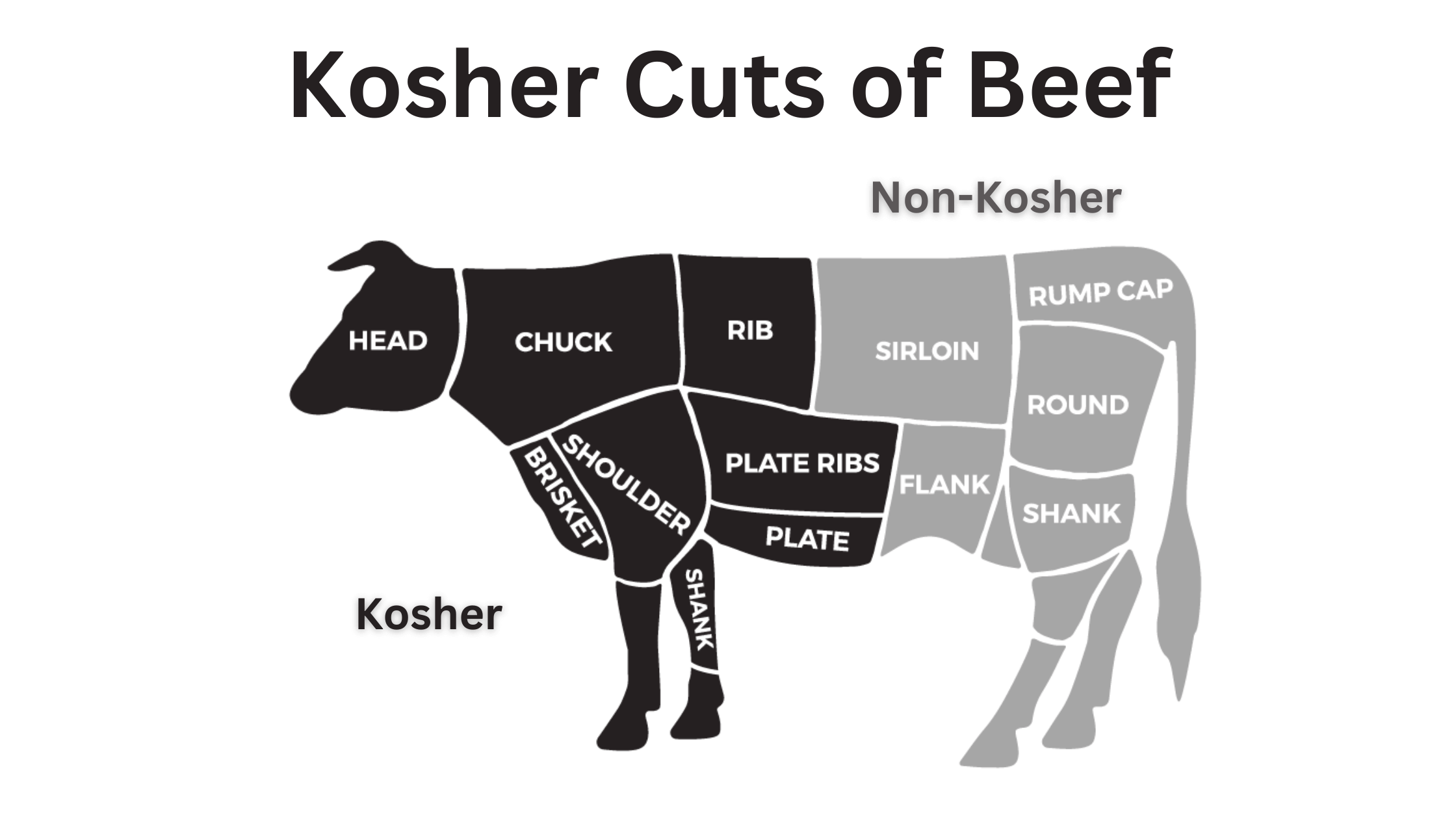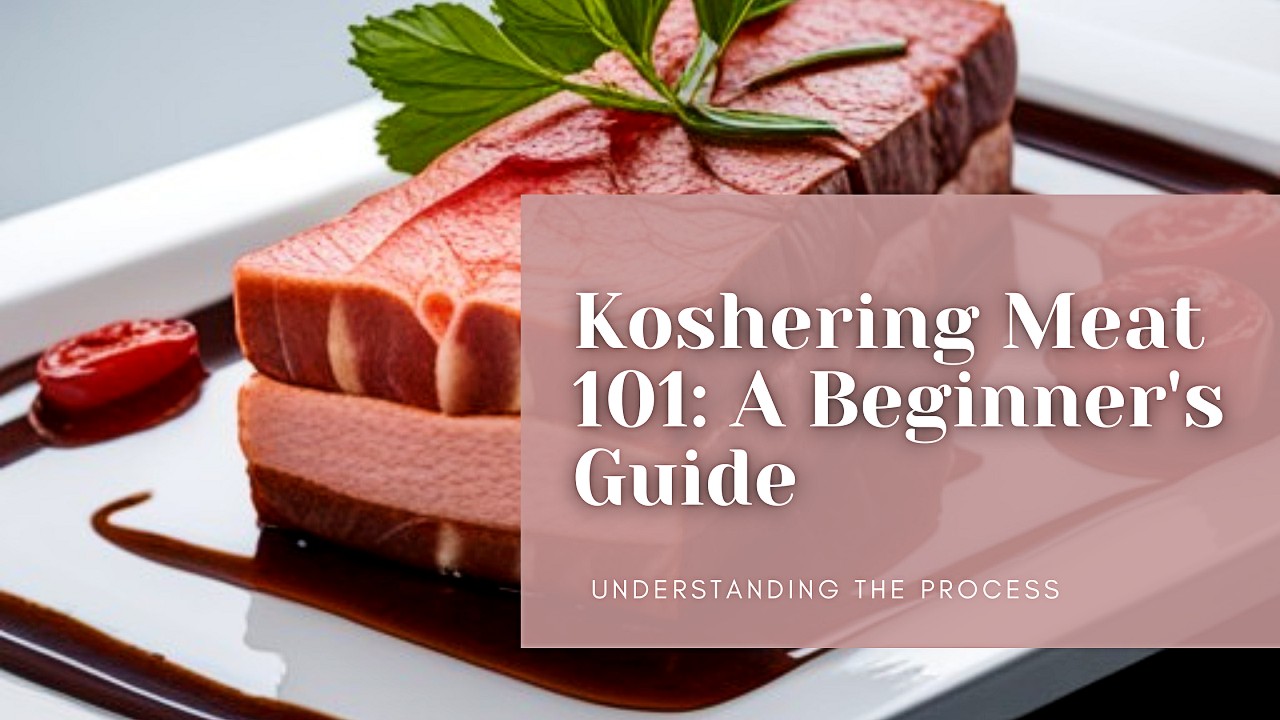Let’s talk about something that’s been on a lot of people’s minds lately—kosher meat. Whether you’re diving into the world of kosher for the first time or you’ve been living this lifestyle for years, understanding what makes meat kosher can feel like navigating a maze. But don’t worry, because we’re here to break it down for you in a way that’s simple, engaging, and packed with valuable info.
Now, when we say "my kosher meat," we’re not just talking about the food itself. We’re diving deep into the culture, traditions, and practices that make kosher meat so special. From the rules that govern how animals are raised and slaughtered to the health benefits and ethical considerations, there’s a lot to unpack. And trust me, by the end of this guide, you’ll be a pro at spotting the real deal.
But let’s get one thing straight: this isn’t just for those who follow Jewish dietary laws. If you’re interested in clean eating, ethical food choices, or even just expanding your culinary horizons, kosher meat has something to offer everyone. So grab a snack (maybe a kosher one?), and let’s dive in.
Read also:Fly Infestation Hits Gauteng Whats Causing It And How To Fight Back
What Exactly is My Kosher Meat?
Alright, let’s start with the basics. What does it mean when we say "my kosher meat"? Simply put, kosher meat refers to meat that adheres to Jewish dietary laws, known as kashrut. These laws dictate which animals are permissible to eat, how they must be slaughtered, and how the meat should be prepared. Think of it as a set of guidelines designed to ensure the food is not only safe but also spiritually clean.
Here’s the kicker: not all meat can be considered kosher. Only certain animals make the cut, and the process of turning them into food is highly regulated. For example, cows and sheep are kosher, but pigs and rabbits are not. And it’s not just about the animal itself—how it’s killed matters too. The animal must be slaughtered by a trained professional, called a shochet, using a specific method that ensures a quick and humane death.
Why Choose Kosher Meat?
So, why should you care about kosher meat? Well, for starters, it’s often considered cleaner and healthier than conventional meat. The strict regulations mean that kosher meat is less likely to contain harmful bacteria or contaminants. Plus, the emphasis on humane treatment of animals aligns with modern ethical standards. If you’re looking for a way to eat better and feel good about your choices, kosher meat might just be the answer.
And let’s not forget the spiritual side of things. For many people, eating kosher is about more than just food—it’s about staying connected to their faith and traditions. Whether you’re Jewish or not, there’s something powerful about eating food that carries such deep meaning.
How is Kosher Meat Different from Regular Meat?
Let’s talk about the differences between kosher meat and regular meat. At first glance, they might look the same, but trust me, there’s a world of difference. Kosher meat undergoes a rigorous certification process that ensures it meets the highest standards. This means no shortcuts, no compromises, and no gray areas.
One of the biggest differences is the way the animals are slaughtered. In kosher practices, the animal must be killed in a way that minimizes suffering. This involves using a sharp knife to quickly sever the arteries, allowing the blood to drain out. Why does this matter? Because blood is considered non-kosher, and draining it properly is essential to making the meat fit for consumption.
Read also:Ryan Boyajians Journey From Real Estate Mogul To Reality Tv Fame
- Kosher meat comes from animals that chew the cud and have split hooves.
- The animals must be free from disease or injury.
- Only certified professionals can handle the slaughtering and preparation.
Health Benefits of Kosher Meat
Now, let’s talk about the health benefits. Kosher meat is often leaner and lower in fat than regular meat, which can be great for your heart health. Plus, the absence of hormones and antibiotics means you’re getting a cleaner product. And let’s be real—cleaner food is always better food.
But the benefits don’t stop there. Because kosher meat is so carefully prepared, it’s often more tender and flavorful than its non-kosher counterparts. So not only are you eating healthier, but you’re also getting a better culinary experience. Who wouldn’t want that?
Where Can I Find My Kosher Meat?
Finding kosher meat might seem like a challenge, but it’s actually easier than you think. These days, there are plenty of stores and online retailers that specialize in kosher products. Whether you’re in a big city or a small town, chances are there’s a place nearby where you can get your hands on some high-quality kosher meat.
Here’s a pro tip: always look for the kosher certification symbol on the packaging. This will tell you whether the meat has been properly prepared according to Jewish law. Some common certification symbols include OU, OK, and Star-K. If you’re unsure, don’t hesitate to ask the store staff—they’re usually happy to help.
Online Options for Kosher Meat
Let’s face it: sometimes it’s just more convenient to shop online. The good news is that there are plenty of websites where you can order kosher meat straight to your door. These sites often offer a wide selection of cuts and varieties, so you can find exactly what you’re looking for. Plus, many of them offer free shipping or discounts for first-time customers. It’s a win-win.
How to Prepare Kosher Meat
Now that you’ve got your hands on some kosher meat, it’s time to talk about how to prepare it. Whether you’re a seasoned chef or a kitchen novice, cooking kosher meat doesn’t have to be complicated. The key is to understand the basics and let the quality of the meat shine through.
Here are a few tips to get you started:
- Let the meat rest after cooking to allow the juices to redistribute.
- Use marinades to enhance the flavor without overpowering the natural taste.
- Always cook to the recommended internal temperature to ensure safety and tenderness.
Popular Kosher Meat Recipes
Ready to try your hand at some delicious kosher recipes? Here are a few ideas to get you inspired:
- Classic Brisket: Slow-cooked and packed with flavor, this is a must-try for any kosher meat lover.
- Kosher Chicken Soup: Comfort food at its finest, this soup is perfect for cold days or when you’re feeling under the weather.
- Grilled Kosher Steak: Simple yet satisfying, this dish is a great way to enjoy the natural taste of kosher beef.
The History of Kosher Meat
Before we wrap things up, let’s take a quick trip back in time to explore the history of kosher meat. The practice of keeping kosher dates back thousands of years, with roots in the Torah and other ancient Jewish texts. Over time, the rules and regulations have evolved, but the core principles remain the same.
One interesting fact: kosher meat wasn’t always as widely available as it is today. In the past, it was often difficult to find, especially in areas without large Jewish communities. But thanks to advances in technology and global trade, kosher meat is now accessible to people all over the world.
Modern-Day Kosher Practices
In today’s world, kosher practices are more important than ever. With increasing awareness of food safety, animal welfare, and ethical eating, more and more people are turning to kosher meat as a way to align their values with their diets. And as the demand grows, so does the variety of kosher products available.
Common Misconceptions About Kosher Meat
Let’s clear up some common misconceptions about kosher meat. For starters, not all kosher meat is expensive. While premium cuts can come with a higher price tag, there are plenty of affordable options out there. It’s all about knowing where to look and how to shop smart.
Another myth is that kosher meat is only for Jewish people. While it’s true that kosher practices stem from Jewish law, anyone can enjoy the benefits of kosher meat. Whether you’re looking for healthier options or simply want to try something new, kosher meat has something to offer everyone.
Conclusion: Why My Kosher Meat Matters
So there you have it—everything you need to know about my kosher meat. From the history and traditions to the health benefits and modern-day practices, we’ve covered it all. Whether you’re a lifelong kosher eater or just curious about trying something new, there’s no denying the appeal of this special type of meat.
Now it’s your turn. Are you ready to take the plunge and explore the world of kosher meat? Share your thoughts in the comments below, and don’t forget to check out our other articles for more great tips and insights. Happy eating!
Table of Contents
My Kosher Meat: The Ultimate Guide
What Exactly is My Kosher Meat?
How is Kosher Meat Different from Regular Meat?
Where Can I Find My Kosher Meat?


